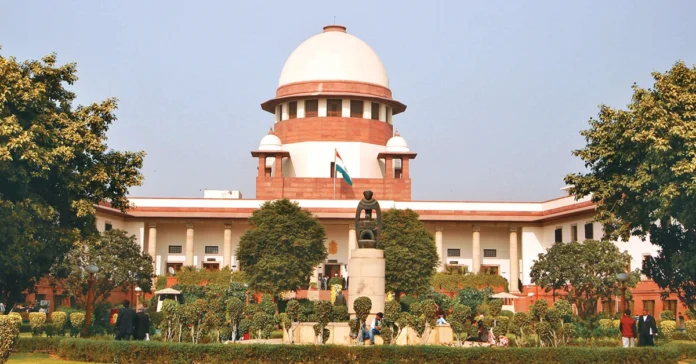The Supreme Court today placed several provisions of the Waqf (Amendment) Act, 2025 under temporary restraint while petitions probing its constitutionality undergo full consideration. A bench led by Chief Justice B. R. Gavai along with Justice Augustine George Masih explained that the entire statute cannot be stayed merely because isolated sections appear to raise serious issues.
The Court emphasised that every statute carries a presumption of validity and that only in exceptional circumstances can an entire law be suspended. The petitioners had challenged the Act as a whole, but the Heart of the dispute lies in specific sections—especially Sections 3(r), 3C, 14 and others.
On examining the legislative lineage going back to the Waqf Act of 1923, and after hearing all parties, the Court found no sufficient grounds to stay the complete law. Still, it held that several of the contested sections exhibit prima facie deficiencies and should be stayed.
Among the stayed provisions is Section 3(r), which requires an individual to have been a practising Muslim for five years before dedicating property as waqf; the Court found this requirement unworkable until rules are framed to define what constitutes a “practising Muslim,” warning that in the absence of such rules arbitrary exercises of power may result.
The proviso to Section 2(c) excluding certain properties from being treated as waqf has also been stayed. Section 3C, which empowers a designated officer to update revenue records and effectively allows the Collector to adjudicate rights, was stayed as well, the Court holding that until there is a final decision on title, no waqf should be dispossessed.
Regarding composition of waqf bodies, the Court ruled that at the national level waqf councils shall not contain more than four non-Muslim members, and in State waqf boards no more than three. It further directed that any ex-officio officer under Section 23 must belong to the Muslim community.
However, the requirement that waqf properties be registered was upheld. The Court noted that registration has been a component of waqf law for many years—including under statutes from 1995 to 2013—and continues under the new Act. Concerns raised about the timelines for registration will be examined more closely as the case proceeds.
The Act in question had been passed by the Lok Sabha on April 3 and by the Rajya Sabha on April 4, and received the President’s assent on April 5. The petitions challenging the amendment were filed by, among others, Congress MP Mohammad Jawed and AIMIM MP Asaduddin Owaisi.
They contend that the amendments target Muslim religious endowments unfairly and encroach on the community’s constitutional rights to manage its own religious affairs. Several State governments have intervened in favour of the amendment. The Court made clear that its observations are provisional, made prima facie, and that full arguments will follow before the final determination of constitutional validity.


